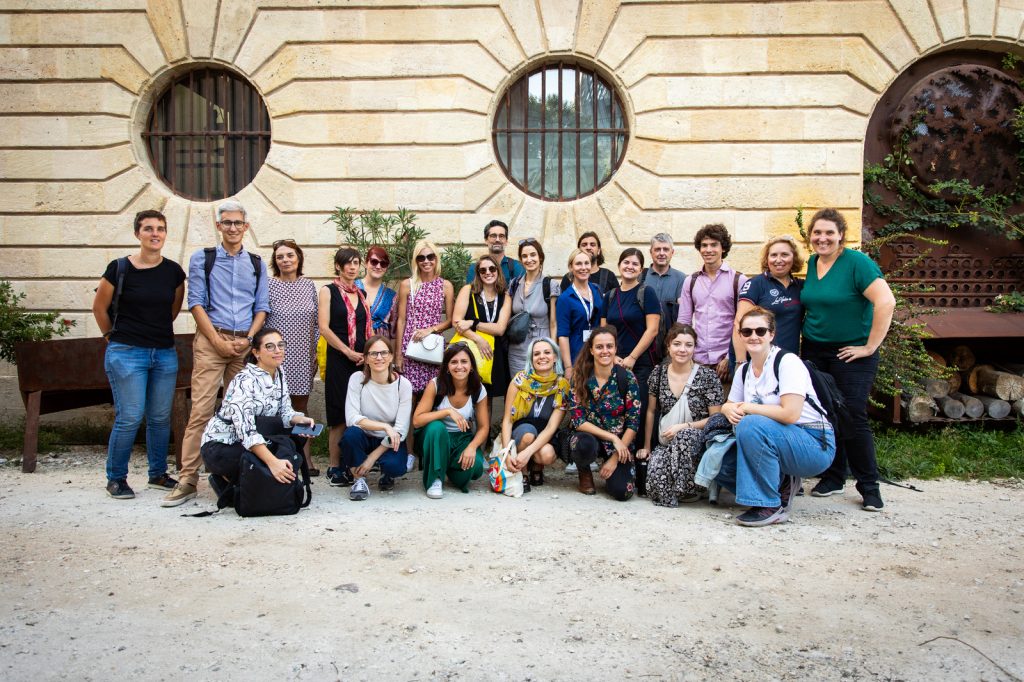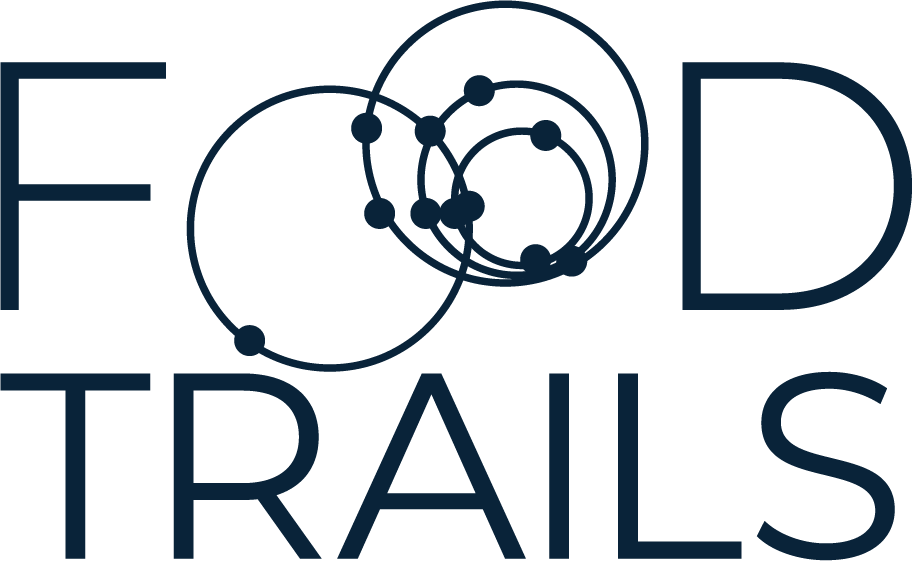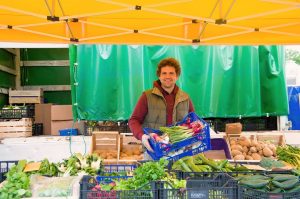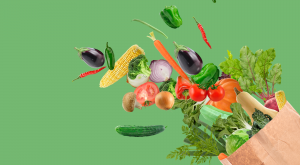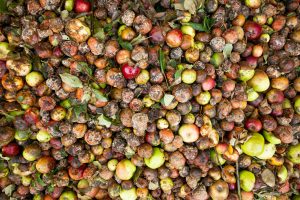In 2022, a shocking 8% of the European Union’s population could not afford a meal containing meat, fish, or a vegetarian equivalent every other day. At the same time, food prices in the EU skyrocketed by 18%, exacerbating food poverty, insecurity, and inequality. While recent months have seen a slowdown in inflation rates (5.9% in August 2023), the impact of rising prices continues to weigh heavily on Europeans.
European authorities are grappling with the direct humanitarian and social consequences of crises such as the war in Ukraine and the challenges posed by the globalised food system. Addressing food poverty and insecurity is paramount to building future-proof cities that are resilient, thriving, and just for all.
On 27-29 September, twelve city representatives from all over Europe gathered for three days at the WG Food/ MUFPP Regional Forum meeting to discuss and exchange experiences and solutions on how local municipalities can meet current challenges and ensure food justice, securing people’s right to food at the local level. Co-hosted by the City and Metropole of Bordeaux, the meeting explored urban policies and experimentation to respond to immediate food emergencies while structurally transforming the local food system for greater resilience, sustainability, and fairness for consumers and producers. In light of the Sustainable Food Systems Framework Law being recently dropped from the Commission’s programme, the learning points from this meeting are all the more relevant.
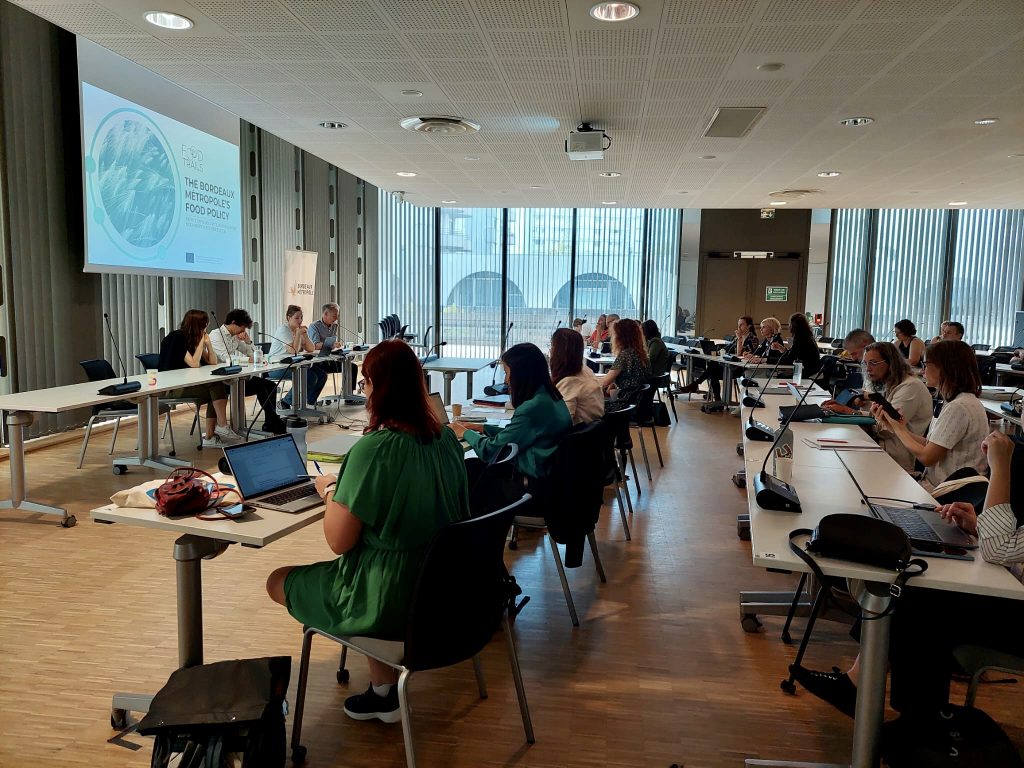
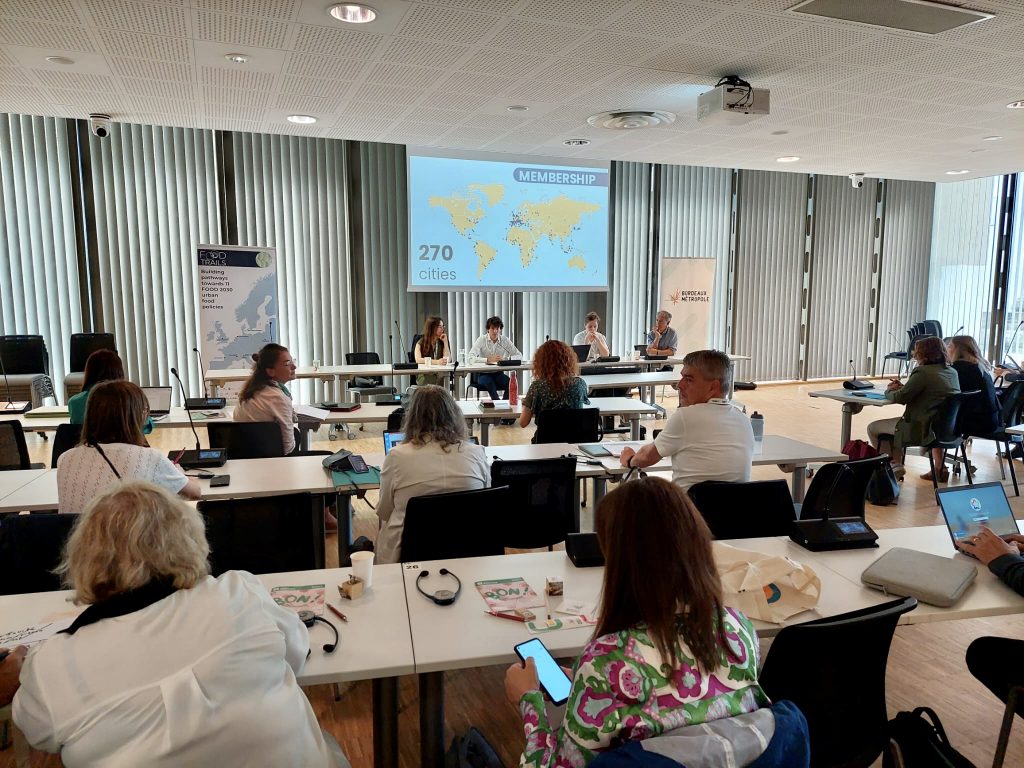




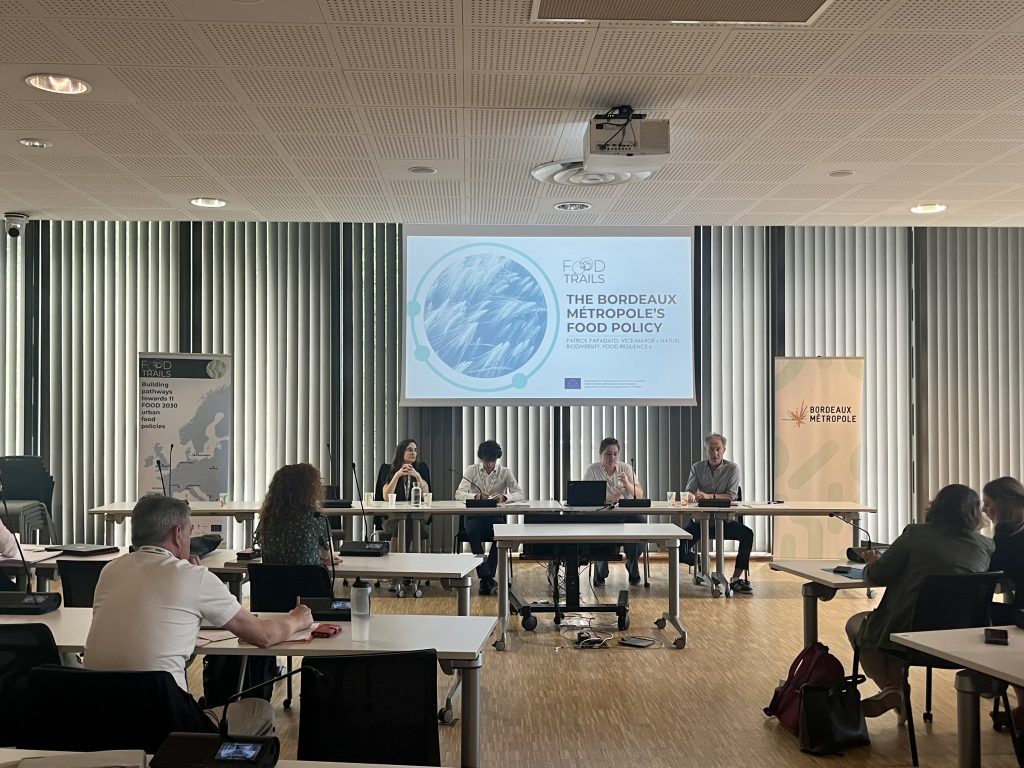
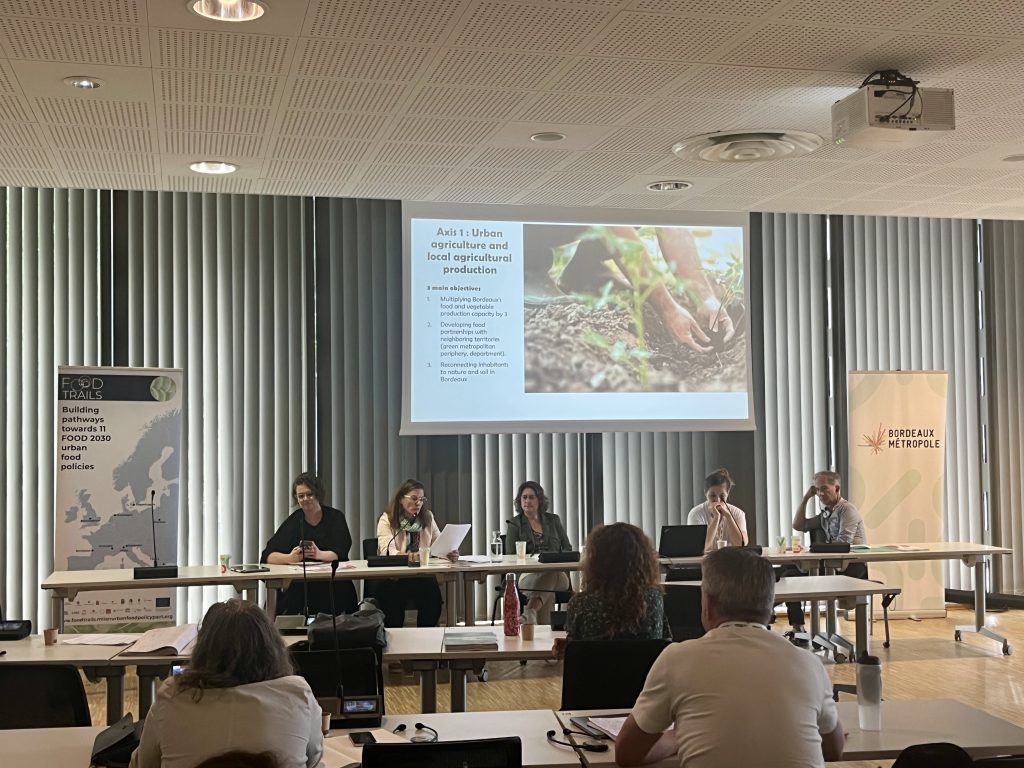
Why should cities care about food justice?
Access to good food is a fundamental right, driven by public health concerns and the need to address injustices in the current food system. At a time when more and more urban dwellers can’t afford quality meals every day, local authorities face growing demands for support from local NGOs and food aid actors. At the same time, food and nutritional inequalities go hand in hand with social, cultural, and gender inequalities, which create tremendous disparities in terms of health and quality of life, mainly affecting already precarious groups.
The food justice approach can help local authorities develop integrated food policies, considering the multi-factorial causes of poverty and food insecurity and how food poverty and structural inequalities are intertwined, to design empowering solutions fitting local groups’ needs.
“There is a need to revalue food, viewing it less as a commodity to be regulated by markets and more as a public good. If food is approached in these terms, then we open up important discussions about the politics of the public good, the position of food within social policy and citizens’ right to food. Doing this also moves us away from seeing charitable food aid as the dominant response to the food dimensions of poverty and towards the development of policies that provide citizens with an entitlement to a minimum level of nutritious food regardless of their income.”
Paul Milbourne- Cardiff University
As Paul Milbourne from Cardiff University explained, the concept of Food Justice views food access disparities as a systemic problem born of structural racism, inequalities, economic disparities, and loss of community control of food. Food justice supporters seek to ensure universal access to nutritious, affordable, and culturally appropriate food for all while advocating for the well-being and safety of those involved in food production.
Integrating replies to social emergencies and food transition
In Bordeaux Metropole, local stakeholders have put food aid issues higher on the agenda through the Food Policy Council, they developed with local elected representatives an effective response to ensure people in precarious situations could access local, fresh, quality products. Bordeaux Metropole’s Food Strategy and Food Resilience Plan are based on food solidarity aiming to anticipate food changes and ensure access to healthy and quality food for all despite the crisis.
Other cities are taking concrete steps to ensure people’s right to food. Since the Covid crisis, Milan has set up Food hubs in partnership with local NGOs and the private sector to collect, store and distribute food throughout the city. This response to locals’ food aid needs also improves the city’s food system circularity. Warsaw, a partner in the Food Trails project, is taking a similar approach. When facing the Ukrainian humanitarian crisis, the city optimised the donor-receiver mechanisms and food aid chain to build a local food ecosystem that is more circular and able to absorb future chocs.
“The reply to an emergency creates a new emergency, elsewhere,” explained Leaticjia Petrovic from the Food Foundation.
In addition to developing crisis-oriented food aid schemes, cities are also looking to go further and implement systemic actions to build resilience and sustainable response to the social challenges of the agri-food transition.
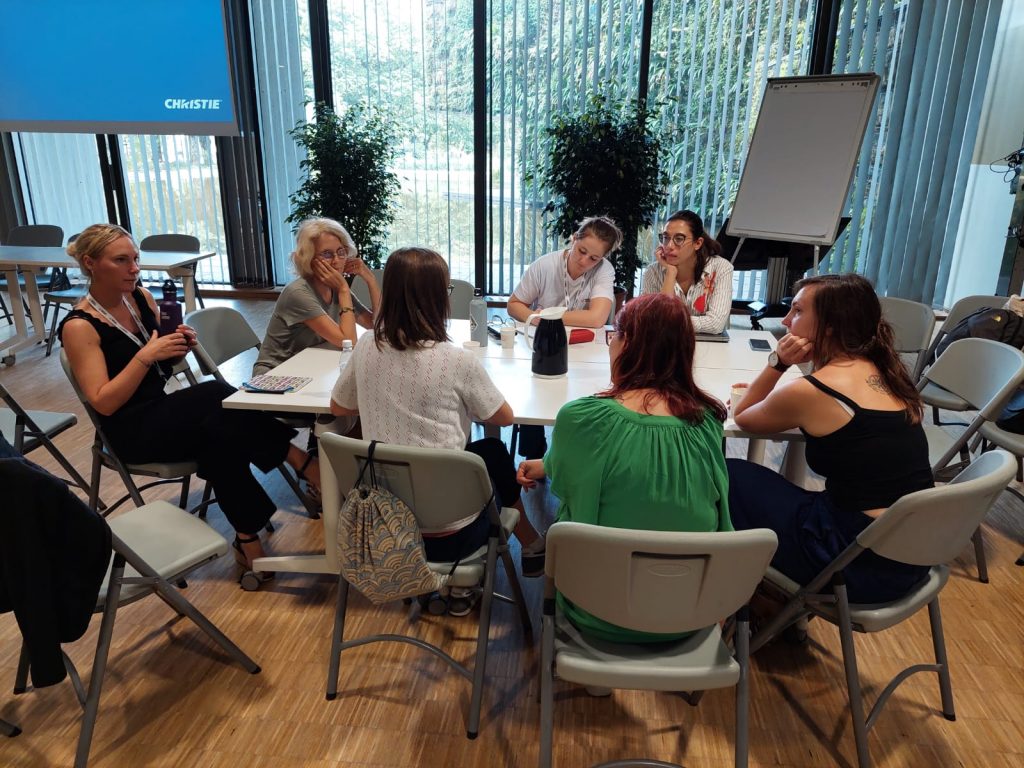











Supporting food aid actors on the ground
Cities can improve good food accessibility and affordability by collaborating with and coordinating stakeholders active on the ground. Local NGOs, charities, and private actors redirect unsold or unconsumed goods to food aid distribution circuits while cities support them with grants, allocation of space, and logistic or technical aspects.
For example, the Food Trails partner city of Tirana supports NGOs in organising food distributions in seven social centres in the city, where anybody can have meals three times a day. In parallel, the city is building a network of restaurants to prevent food waste and encourage food surplus distribution. A few thousand kilometres north, the FoodSavers project has helped Ostend to reshape the city’s food flow. The Belgian city will manage food surplus from collection and storage to redistribution and sale while creating employment using food aid as an entry point for further social support.
“Bordeaux Metropole acts as a distribution belt, a facilitator to local initiatives. (…) The Metropole puts local players in touch to help them coordinate better, get to know each other and link up with producers and the whole distribution chain.”
Patrick Papadato- Vice President of Bordeaux Metropole for nature, biodiversity and food resilience strategy.
Public catering and public procurement
Cities’ procurement power for public canteens is efficient leverage to ensure quality food is available to all while supporting sustainable local food production and ensuring fair wages for producers.
Cities like Ghent, Grenoble-Alpes Metropole, Lyon Metropole, and Milan are using school canteens and procurement to structure supply chains, support sustainable local food production, and shift eating habits while providing access to affordable, quality and healthy food.
Barcelona is centring its policies on solidarity. The ‘Cultivate’ project is designed to form a farmers’ cooperative in the wholesale market while also introducing community kitchens. These endeavours aim to make local food more accessible and to educate and reconnect individuals through shared food experiences.
Through its Territorial Food Project, Bordeaux Metropole supports local production and farmers and set up a working group with other municipalities of the Metropolitan area to provide technical and logistical support in transforming procurement tenders and increasing the share of local and organic food served to citizens and kids in schools. Cities feel the need to revise the procurement rules in the EU and introduce minimum procurement criteria to re-evaluate sustainability and locality and favour local supply chains and farmers.
Promote local and urban agriculture
Beyond procurement, cities can influence food production to ensure food accessibility and affordability and build fair systems for producers and consumers. How? By re-localising and supporting short supply chains, developing urban agriculture, connecting producers and consumers to ensure reasonable prices and remuneration, and protecting farmers’ markets.
Tirana, for instance, has fostered organic and local farming by establishing the AgroPark, where farmers can sell their products without any charges. This aligns with Gdansk’s strategy of providing city spaces for local farmers to vend their produce on weekends, free of cost.
Lyon Metropole and Milan have anchored their efforts in bolstering local agriculture within their urban ecosystems. Lyon champions the local production chain by aiding in the creation of a windmill and assisting farmers in settling within the metropolitan territories. Simultaneously, Milan underscores the importance of local produce by providing land for farming and prioritising local produce for school canteens.
Bordeaux has made significant strides in restructuring its markets. With initiatives like the Jardin d’Abondance community garden scheme, the city has shifted from a market predominantly occupied by wholesalers to a more balanced presence of local producers.
Ghent recognises the hurdles local producers face in direct sales and offers financial backing to help them launch their ventures.
“Short circuits for food safety also mean making people aware that cooking costs less than buying processed products, that it’s better for your health, and that if you choose your products at the market, you’ll be lucky enough to pay less than the supermarkets.”
Patrick Papadato – Vice President of Bordeaux Metropole for nature, biodiversity and food resilience strategy.
Food justice is not just about ensuring access to good food; it’s also about empowering individuals to choose culturally appropriate and healthy food. This entails involving stakeholders in co-constructing local food policies and building food democracy.
Empowering local stakeholders for food justice and food democracy













Cities integrate food justice objectives in their overall approach to food system transformation. This systematic change ensures healthy and quality food accessibility and affordability, reduces inequalities and food waste production, empowers beneficiaries and involves stakeholders in the decision-making processes and implementation of local policies.
Bordeaux’s Food Council, for example, aims to widen outreach and engage a diverse range of stakeholders, fostering a sense of ownership as they guide food policy implementation. Similarly, Birmingham is focused on amplifying the voices of underrepresented groups through its “Seldom Heard Voices” initiative. Lyon is championing sustainability with its “Quartiers fertiles” project, while Barcelona offers a direct approach to food accessibility by providing citizens with money-loaded cards, granting them the freedom of choice in their food purchases.
Establishing a just food system requires solutions tailored to the local context; there are no one-size-fits-all solutions. Addressing food justice consequently requires a more systemic approach to fill the gaps by connecting with other sectoral policies, actions, and innovative solutions.
Social Security on Food
Some French metropolises are pushing the reflection a step further by experimenting with social food security schemes locally, like Montpellier Metropole, Bordeaux Metropole, and Lyon Metropole.
Based on the social security system established in France after the Second World War, food redistribution also tackles food aid in an empowering and dignified way by giving people the choice and agency of what they eat.
In Bordeaux, an experimental approach grants residents an allowance of €150 per month for food-related expenses. This initiative operates on three core principles: universality, ensuring all residents are eligible; the endorsement of democratically organised store and product agreements; and a financing structure rooted in social contributions.
As Jeremy Camus, Vice-President of Grand Lyon Metropole for agriculture and food, underlines, local authorities’ experimentation power should be more recognised and supported by other levels of government, including the EU. This would allow cities and metropolises to continue finding innovative ways to develop food justice.
Food justice is a pressing issue in European cities, and local authorities are taking the lead in addressing it. By supporting food aid actors, utilising public procurement, promoting local agriculture, empowering stakeholders, and experimenting with social food security schemes, cities are working towards building resilient, sustainable, and just food systems. Recognising the importance of food in social and health policies at all levels of government and providing support and resources to local authorities are essential steps toward achieving food justice.
